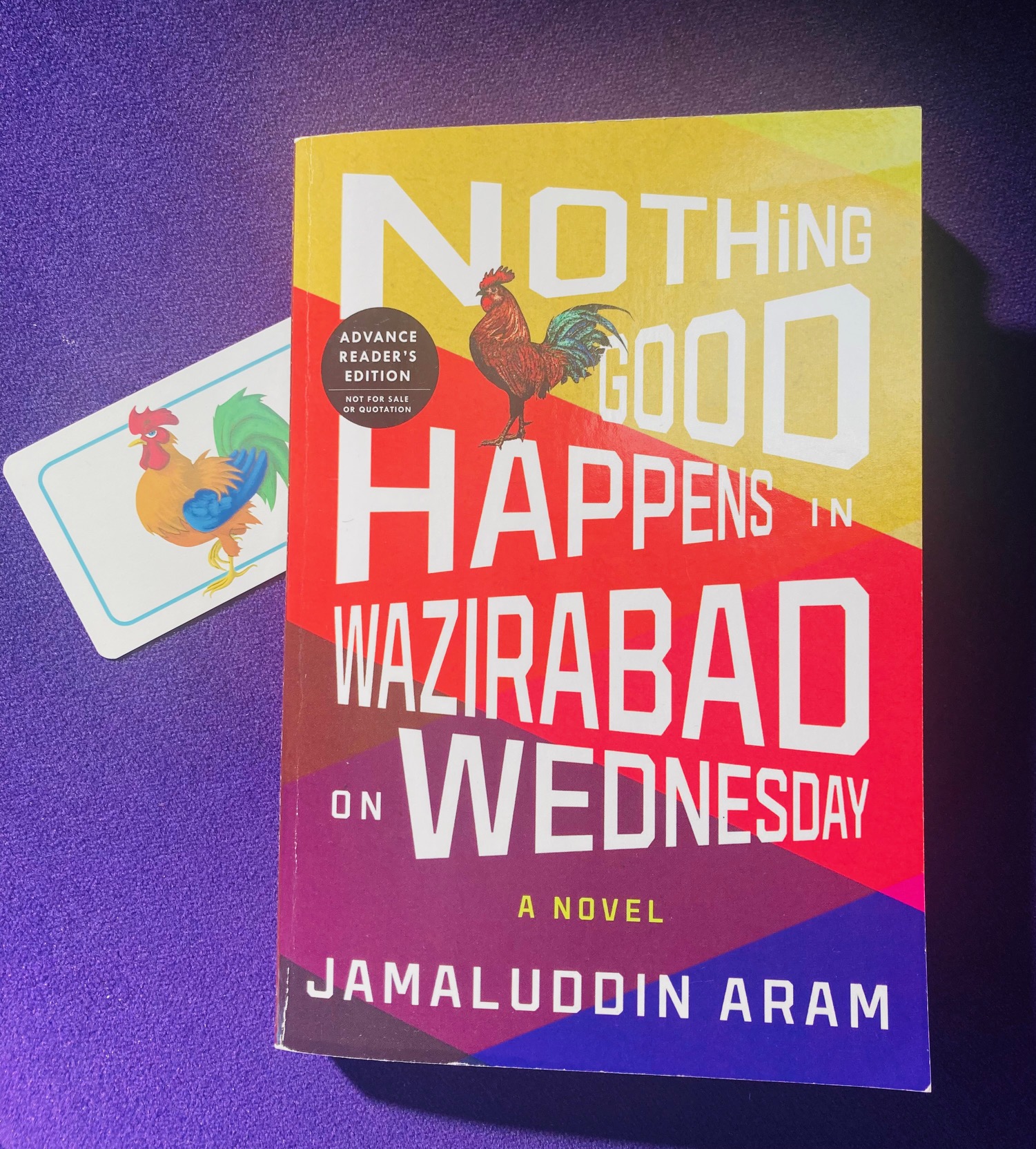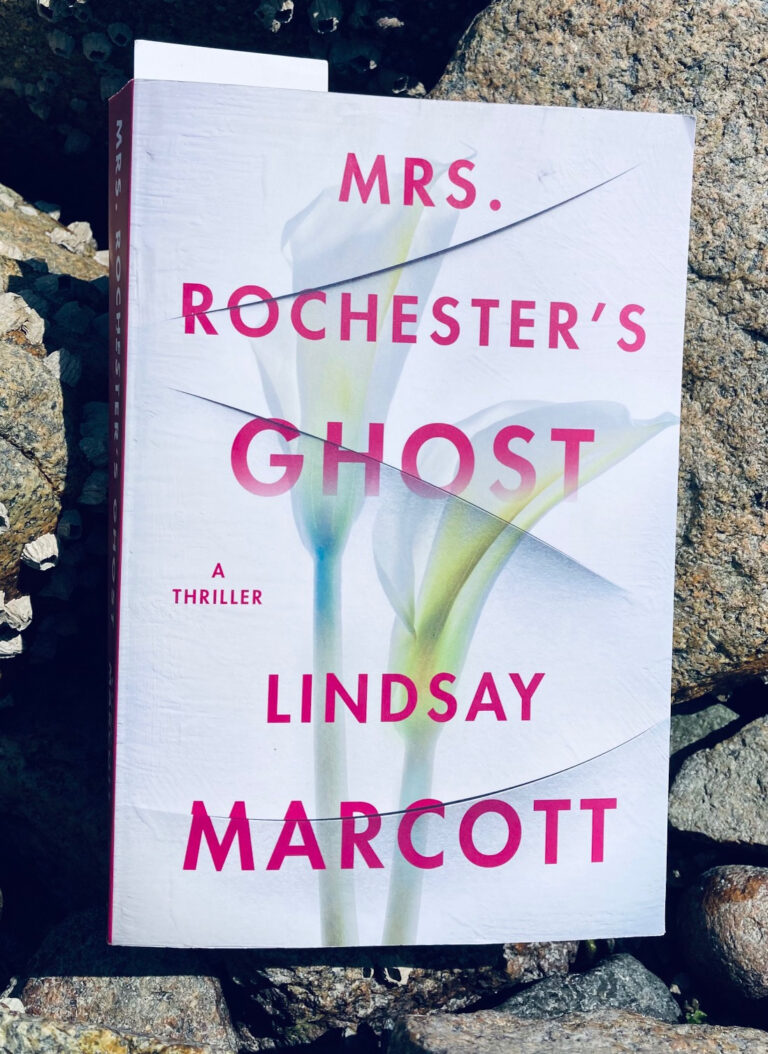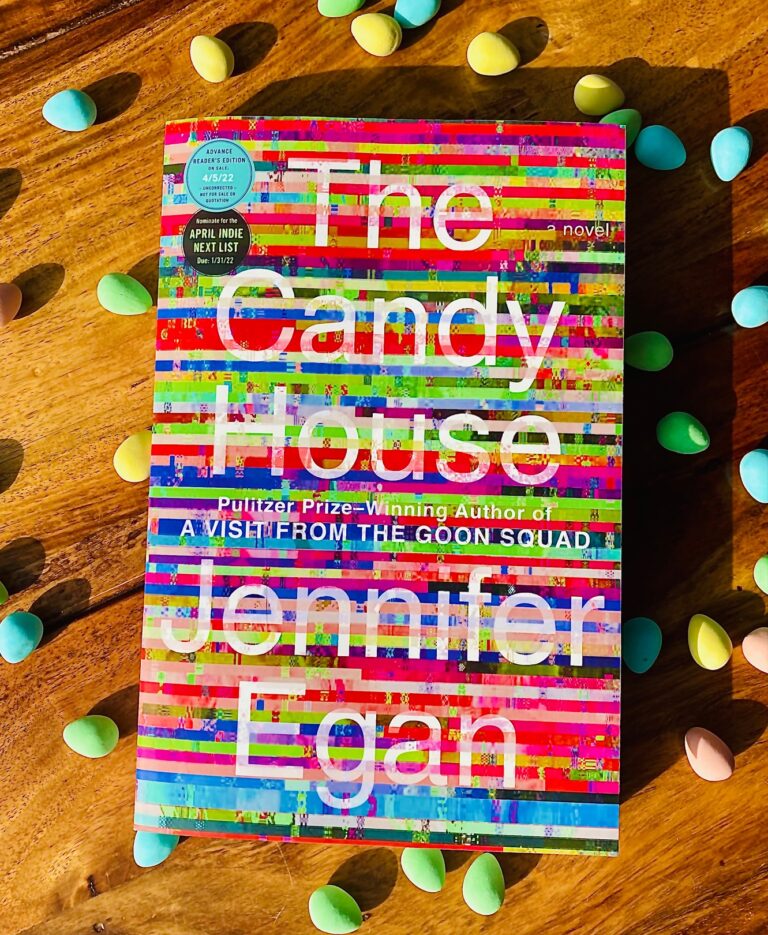Book Review: Nothing Good Happens in Wazirabad on Wednesday by Jamaluddin Aram

Despite the extremely long title of this book, it’s actually a quick read. Nothing Good Happens in Wazirabad on Wednesday by Jamaluddin Aram is a novel that encompasses a variety of genres; humour, literary fiction, even magical realism. It doesn’t get its own chapter, but the rooster on the cover is a pivotal character too. Unfortunately we never hear his perspective directly, but he makes appearances within every other character’s section, somehow gaining respect from every single person, no matter their circumstance. This magnificent rooster is just one of the quirks of this very odd little novel.
Plot Summary
Wazirabad Afghanistan is a town like many others surrounding it. It’s the early 1990s, and a civil war has broken out around it, but none of the fighting happens on the page, it’s all ‘in the distance’, so instead this book focuses on what happens in between the fighting. First we meet Aziz and his sister Seema, whose mother is the local washerwoman, but it’s hinted that she does more with the soldiers than wash their clothes in order to keep her children fed. Next is the Mason, who buys live scorpions to smash up and smoke, as the high is better that way. Husnia is a young woman who married an older man, and desperate to get pregnant, she falls in love with a younger man (boy really) who has inherited the vegetable stand from his deceased grandfather. This boy, Sikandar, is faced with an even bigger burden when his father’s temper finally goes too far, killing a family member that Sikandar has to help bury. This is only a handful of the entire cast of characters we meet throughout the book. Much like a short story collection, we spend a limited amount of time with each, learning more about their life, while at the same time hearing about the developments of other characters, so the story is continuously moving forward for everyone, even those we never hear from directly. In Wazirabad, everyone knows everyone, and secrets are difficult to keep.
My Thoughts
Even though I picked up this book to learn about its setting (which from what I can tell, is a fictitious place, although there is a Wazirabad in Pakistan, but I don’t think that’s the town this book is referring to – let me know if I’m wrong in the comments!), I quickly realized this book is more about its inhabitants, and this story could take place in any number of towns caught up in civil war at that time. And even though I liked getting to know multiple characters, I found that I would have preferred to be anchored down into the narrative by one single person. As certain situations unfolded in the village I kept wondering to myself how certain characters were reacting to the drama, and I realized how much I missed hearing from previous people. Some characters like the militiamen we only meet briefly, and its when they are hurting another person, so we aren’t meant to ‘connect’ with them the way we are with other positive people we spend more time with, but I resented being pulled away from those more interesting storylines. The women in particular lead a richer life in these stories; they are generally ignored by the men, but their inner lives are full of desire and hope, so I would have preferred their narratives dominated the book. While the men seemed mostly concerned with talking about what they and others should have been doing, the women were actually doing.
Dreams play a critical role in the lives of Wazirabad’s citizens, and they often speak about them out loud to others, analyze them, and use them to predict what’s going to happen next. Husnia takes a new lover based on her dream, and another young woman dreams of snow piling up around the town, which is quite unusual for that area, but it comes true, and Wazirabad is hit with a snowstorm that lasts for days, burying it for an extended amount of time. People go to The Bonesetter to talk about their dreams and he helps pick them apart and make sense of them. This reverence and respect is also offered to the aforementioned rooster, as he too is a symbol of life’s bizarre machinations; no one understands why these things happen, but they rely on them,
The elements of humour come through in the individual quirks of each person, so although I didn’t necessarily want to get to know so many different people, I enjoyed learning about their odd little habits which only become more solidified as the town’s resources and distractions dwindle. For example Dr. Jamal is the town’s only doctor, but no one trusts him because he spends all his time talking to his cat, so everyone goes to the Bonesetter for medical assistance, even though he is using traditional medicines and knowledge that arguably, isn’t much help. Malem the Calligrapher is looked upon with suspicion because he apparently went insane by reading a specific book, but he’s the only adult to still show up at school. Like every small town, Wazirabad features a.cast of colorful characters that have learned to live with one another however I could have done without the wide net and would have preferred a tighter focus on just a few plot threads,




Yes, I often find in books with this kind of shifting from character to character that I’d really prefer to spend more time with just a few of them. Smoking scorpions?? I am equally intrigued and appalled!
haha right? there were some odd little gems in it for sure
Of course I love the idea of the rooster as you’ve described it! And I always know that you’re going to find books with lots of povs in them annoying, but I also know that they’re likely to suit me just fine.
Gosh, I really need to learn this about myself, don’t I? Too many POVs ruin it for me, but that’s, as you mentioned, just a preference :)
If I’m going to read a book with quirky characters, I want the setting to be absolutely important. Their lives should immerse me in place because they are all so different. I had a similar experience with a memoir in which the family is Pakistani, and their personalities highlight what Pakistan has to offer and what it lacks.
The setting is in an area of Kabul, Afghanistan called Wazirabad – this is where the author grew up.
Ah ok, thank you for clarifying!